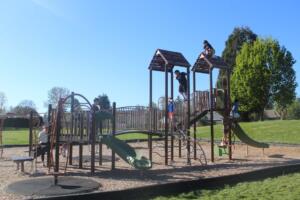Camas will remain home to Clark County’s only independently operated library.
At the Camas City Council’s annual planning conference Saturday, elected leaders agreed with staff’s recommendation to keep the Camas Public Library independent, but look for ways to develop its relationship with the Fort Vancouver Regional Library District.
The possibility of annexing Camas’ library into the FVRL was first discussed by the City Council in early January, following the retirement in October 2015 of the library’s longtime director.
According to Mayor Scott Higgins, comments from the library’s board of directors and staff that followed focused on the belief that efforts should be made to enhance the library’s existing resources, without sacrificing local ownership.
“So, how do we accomplish both of those things? Is there a way to not only keep what we love, but also add content?,” he said. “This looked like a way to do that. That’s why we are recommending it as we move forward.”
Currently, through a shared services agreement Camas patrons have access to FVRL library catalog software and computer reservation systems, and reciprocal borrowing privileges. The city does not pay any fees for these privileges at the moment, but as part of the coming year’s contract negotiations with FVRL that is expected to change.




